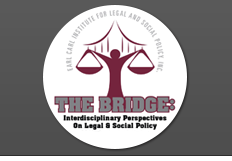Abstract
“Open courts” are a bedrock principal of our judicial system, and court secrecy, including concealment of pretrial proceedings, poses a serious threat to public safety. Overbroad protective orders have concealed facts uncovered during litigation regarding some of the most important public harms, keeping them secret when the public needs protection. Protective orders routinely include provisions that allow parties to designate discovery material as “confidential” without further judicial review. These orders are often abused and result in unnecessary costs to litigants, the courts, and the public’s confidence in the court system. This is always a mistake because it harms the discovery process as a whole, including the ability to compare discovery responses in similar matters, and the integrity of the court system. And because civil rights litigation involves evidence of pattern and practices of police misconduct, overbroad protective orders bury the evidence in each new case. In contrast, a protective order with a sharing provision allows future litigants to discover the patterns of misconduct in a particular department. This presentation elaborates on that process.
Recommended Citation
Doyle, Michael P. and Brockway, Erin
(2021)
"Civil Rights and Protective Orders,"
The Bridge: Interdisciplinary Perspectives on Legal & Social Policy: Vol. 6:
Iss.
2, Article 5.
Available at:
https://digitalscholarship.tsu.edu/thebridge/vol6/iss2/5
Appendix

